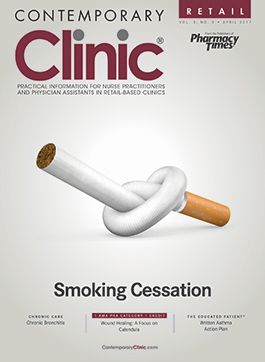Health Care Innovations Continue Despite Uncertain Times
As we head into spring 2017, we no doubt face an interesting time for health care in our country.
Dear Colleagues,
As we head into spring 2017, we no doubt face an interesting time for health care in our country. With debates ongoing at the federal level, there is a degree of uncertainty felt across the industry; despite this, our work continues. From our highest leadership levels to the distinct work being conducted by our providers every day in the clinics, we are dedicated to serving and healing our communities. Further still, we head into this spring a growing industry, with more clinics open and in operation than ever before.
Times of uncertainty often breed times of innovation. The health care industry is not only consistent with this notion, but an exemplar of it. The work we do is creating a continuum of care that extends far beyond what used to be our scope of practice. This includes but is not limited to the innovative telehealth and telemedicine technologies being implemented, as well as expanding our definitions of providers. I have already witnessed colleagues and providers alike face down uncertainty with an emboldened sense of innovation and collaboration. It’s as Thomas Friedman once said, “America still has the right stuff to thrive. We still have the most creative, diverse, innovative culture and open society—in a world where the ability to imagine and generate new ideas with speed and to implement them through global collaboration is the most important competitive advantage.” To this point, we look forward to new partnerships and collaborations to ensure our industry horizon remains ever expanding.
In pursuit of these missions, our 3rd Annual Convenient Healthcare and Pharmacy Collaborative will both expand opportunities for attendees to learn of the innovative practices and ideas being implemented in health care, offering 20 CE credits for the first time, and prioritize opportunities for pharmacists, physician assistants and nurse practitioners to network and collaborate.
Looking back, it is certain that we had a winter season that scientists predict will bring about a powerful allergy season. This month, Contemporary Clinic® focuses on respiratory issues, including asthma and bronchitis, which go hand in hand with allergies. Respiratory issues continue to be a major focus in the work that we do, and we hope that the educational content in this issue will help clinicians remain up-to-date on the latest research, trends, and information they need to support their ongoing efforts to provide accessible, affordable, high-quality health care.
As we continue to move through 2017, I wish you all a healthy spring season.
Thank you for all that you do!
Very truly yours,
Tine Hansen-Turton, MGA, JD, FAAN, FCPP
Executive Director
Convenient Care Association

Knock Out Aches and Pains From Cold
October 30th 2019The symptoms associated with colds, most commonly congestion, coughing, sneezing, and sore throats, are the body's response when a virus exerts its effects on the immune system. Cold symptoms peak at about 1 to 2 days and last 7 to 10 days but can last up to 3 weeks.
COPD: Should a Clinician Treat or Refer?
October 27th 2019The Global Initiative for Chronic Obstructive Lung Disease (GOLD) defines the condition as follows: “COPD is a common, preventable, and treatable disease that is characterized by persistent respiratory symptoms and airflow limitation that is due to airway and/or alveolar abnormalities usually caused by significant exposure to noxious particles or gases.â€
Diabetic Ketoacidosis Is Preventable With Proper Treatment
October 24th 2019Cancer, diabetes, and heart disease account for a large portion of the $3.3 trillion annual US health care expenditures. In fact, 90% of these expenditures are due to chronic conditions. About 23 million people in the United States have diabetes, 7 million have undiagnosed diabetes, and 83 million have prediabetes.
What Are the Latest Influenza Vaccine Recommendations?
October 21st 2019Clinicians should recommend routine yearly influenza vaccinations for everyone 6 months or older who has no contraindications for the 2019-2020 influenza season starting at the end of October, according to the Advisory Committee on Immunization Practices.
What Is the Best Way to Treat Pharyngitis?
October 18th 2019There are many different causes of throat discomfort, but patients commonly associate a sore throat with an infection and may think that they need antibiotics. This unfortunately leads to unnecessary antibiotic prescribing when clinicians do not apply evidence-based practice.
